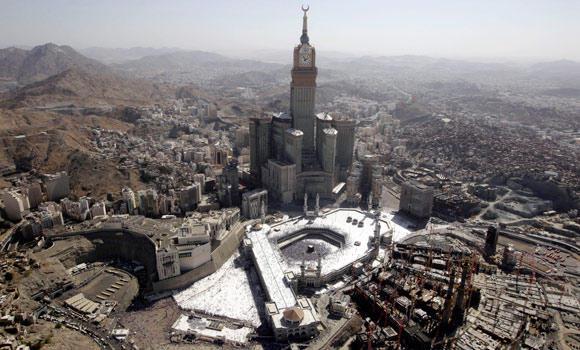
Jeddah, Feb 9: Investors may have to pay a whopping SR 2 million for a square meter of land in the central zone around Makkah by the end of 2013, said chairman of the real estate committee at the Makkah Chamber of Commerce and Industry Mansour Abu Rayash.
Prices ranged between SR 500,000 and SR 1.5 million in 2012. A square meter in a strategic area in Japan is about $ 100,000, seven times cheaper than Makkah, he was quoted as saying in Al-Sharq newspaper.
“Real estate investments rose to 45 percent in Makkah alone while the rest of the country’s regions accounted for the remaining 55 percent,” he said, adding that the percentage would increase to more than 50 percent in 2013.
“The real estate market in Makkah witnessed above-expectation figures in terms of pricing and deals. Forty-five percent of all liquidity poured into the city of Makkah.”
“Makkah is witnessing massive activity in its real estate market caused by property-expropriation compensations which amounted to SR 200 billion in 2012.”
Abu Rayash said a lot of money was poured into the real estate market in Makkah by many investors from different regions including Riyadh, Qasim, Eastern Province and southern regions. He said liquidity in Makkah would increase to SR 250 billion in 2013 as a result of “the demolishing of the Parallel Road, the expansion of the Madafe, Jabal Alkaba and Harat Assada districts and progress on the issue of unplanned districts in the city.”
Abu Rayash said many investors are heading to Makkah instead of other main cities such as Riyadh and Jeddah because of the massive growth in the numbers of Umrah and Haj pilgrims. “It is expected the city will receive seven million Umrah pilgrims and four million Haj pilgrims this year as a result of expanding the Holy Sites, the new Mashaer and Makkah trains and the completion of the Jamrat Bridge expansion.”






Comments
Add new comment